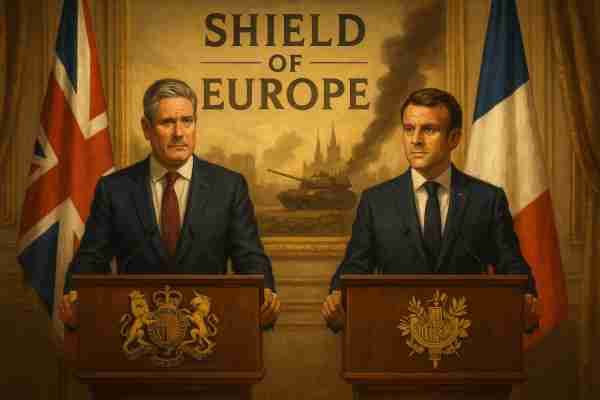It was a warm July day when the halls of Westminster echoed with confident, deliberate footsteps. Keir Starmer walked toward the conference room, where Emmanuel Macron was already waiting. Their conversation wasn’t just a diplomatic meeting — it was an attempt to write a new chapter in European history. “We can’t wait any longer,” Starmer began. “Ukraine needs clear signals, and Europe must be that signal.” Macron nodded. “Not just for Ukraine. We must be our own guarantors of security.” Thus began the work on what journalists would later call the “Coalition of Responsibility.” Behind closed doors, they weren’t just discussing numbers and map pins — they were debating values. What does it mean to be an ally? What does it mean not to retreat? In the adjoining room, British and French advisors compared memorandum drafts, lists of participating countries, and preliminary proposals for peacekeeping centers in western Ukraine. In their eyes was fatigue — but also pride. They knew their work could shape history. By evening, as tourists clicked cameras at Trafalgar Square, Starmer entered the press hall holding a printed statement. Macron stood beside him, spine straight, gaze firm. “Today,” Starmer declared, “we assume responsibility. We are building a coalition of nations ready to protect peace after the silence. Not for war. For ensuring it never returns.” London applauded, but in Kyiv, people held their breath. Ukrainians heard the words as a promise. A voice that refuses to fade, even when others fall silent. The next morning, the British army began preparations for a possible mission. Not to attack — but to stand as a shield. The shield of Europe.
Shield of Europe: The Day London Spoke for Peace

Published : 10.07.2025
